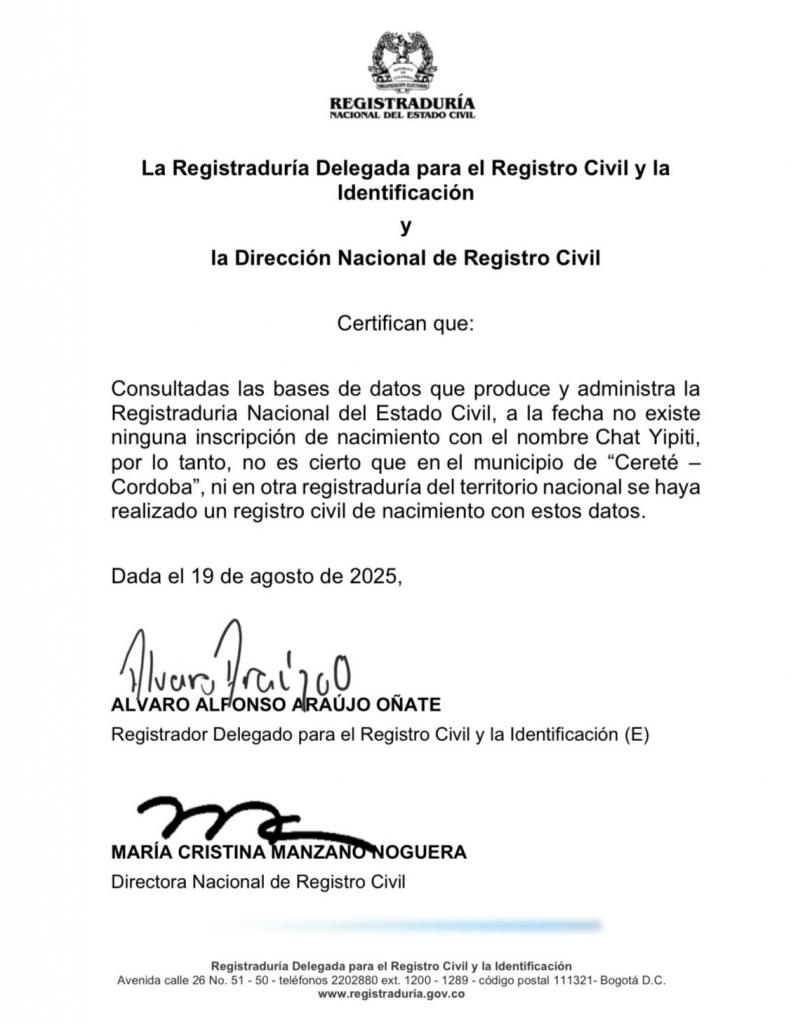On August 15th, in Cereté, Colombia, a newborn baby girl received a bold and modern name during her registry entry: Chat Yipiti Bastidas Guerra.
Derived phonetically from “ChatGPT,” the name was chosen by her parents as a tribute to the emergence and cultural impact of artificial intelligence.
How the Name Was Received
The registration proceeded smoothly at the Cereté Registry Office, as local officials found no legal issue with the name. Yet the choice swiftly triggered national and international debate. For some, it’s an inventive celebration of technological progress.

For others, it raises concerns about future implications—from teasing in schoolyards to identity confusion.
Colombian Law on Baby Names
Colombia allows parents extensive latitude in naming children, as long as the name does not transgress principles of respect and dignity.
Authorities are empowered to reject names deemed humiliating, offensive, or harmful to the child’s reputation. In this case, “Chat Yipiti” passed muster, despite its unconventional AI origin, highlighting the elasticity of naming norms in the country.
A Trend of Unusual Names
Chat Yipiti is far from the first bold choice seen in Colombia. The country has a reputation for imaginative naming, including examples like “Usnavy” (inspired by U.S. Navy), “John Crazy,” and even layered constructions such as “Dayana Valentina Shakira.”

This trend reflects a blend of pop culture, digital influence, and creative expression shaping naming decisions.
Cultural Implications of Naming After AI
This naming trend spotlights a broader cultural evolution—where admiration for technology infiltrates personal identity. The phenomenon prompts questions: Should names honor human figures, ideas, or inventions? Will naming a child after a tool like ChatGPT feel strange as the child grows?
These debates are likely to intensify as AI becomes more intertwined with daily life.
A Broader Reflection on Identity and Modernity
Beyond headlines, the case of Chat Yipiti invites reflection on identity formation in the digital age. It also encourages discussion on how evolving norms clash with traditional identity frameworks.
Ultimately, it raises this vital question: How will society balance innovation and dignity when personal identity becomes a canvas for cultural values?

Leave a Reply